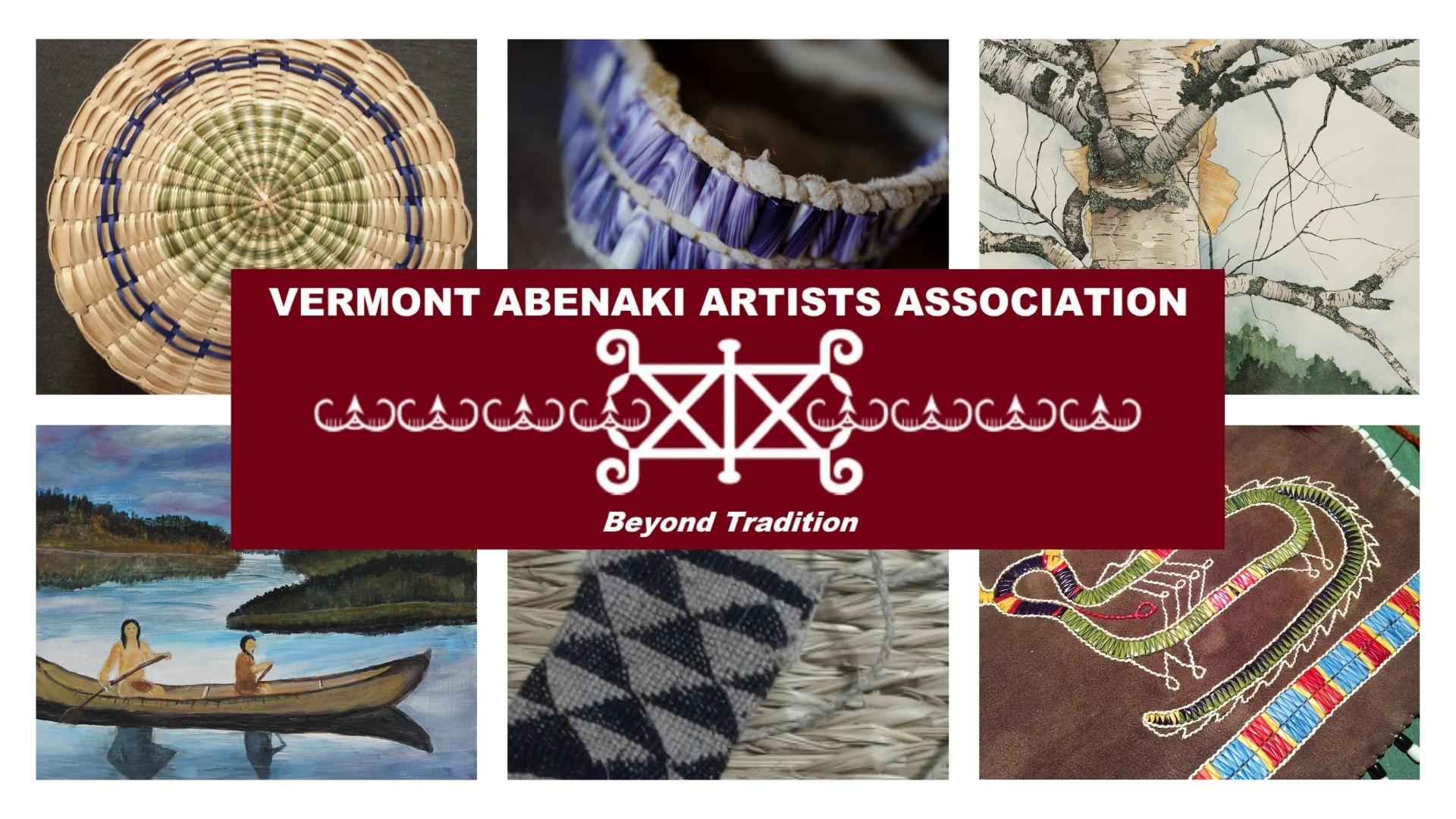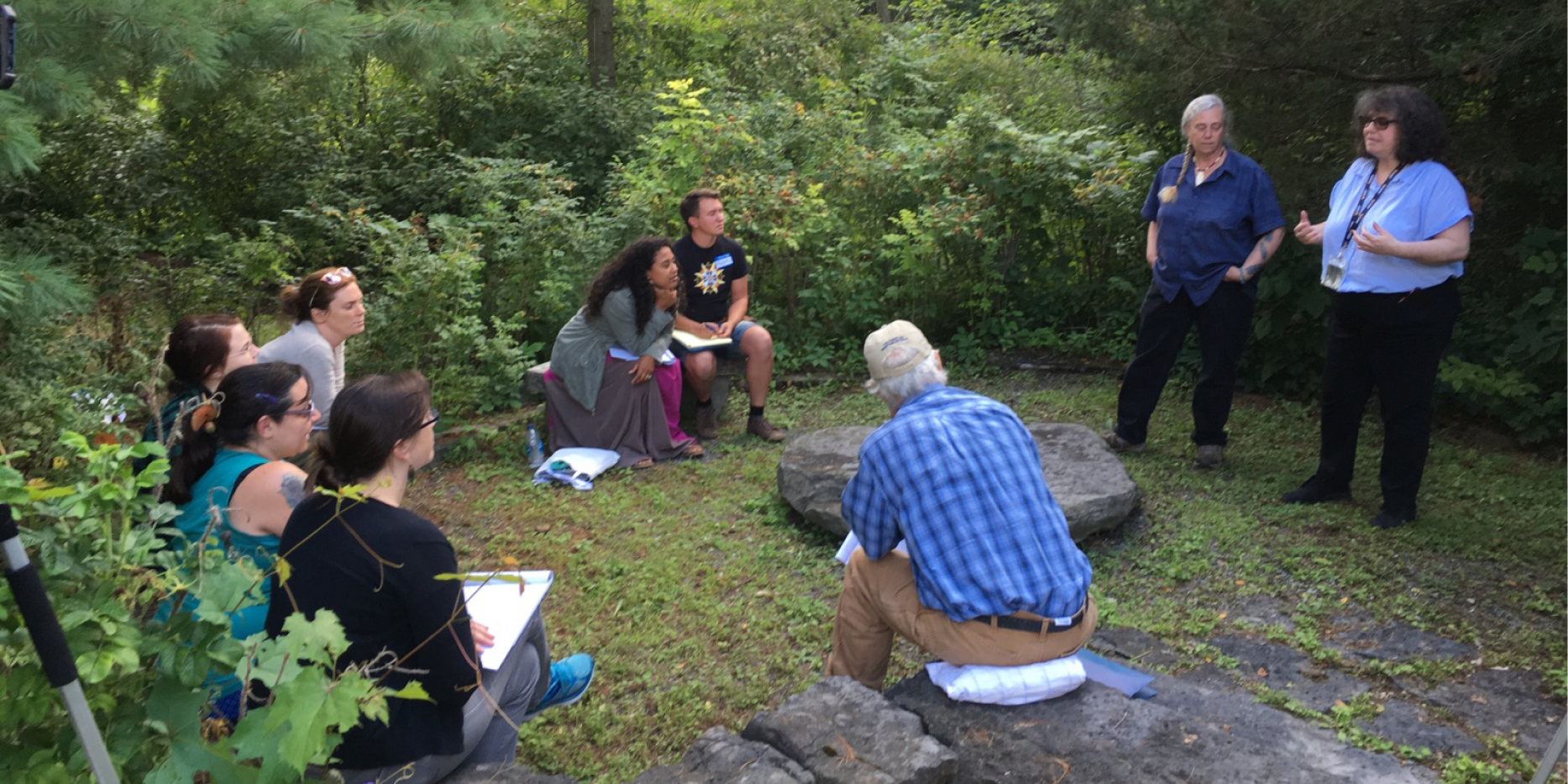
This Course is Held in the Fall Semester
Presenting Abenaki Culture in the Classroom is a 15-week professional development course that provides teachers with a background on 13,000 years of Abenaki culture in the region. It also introduces teachers to decolonization theory, and cultural competency principals. This is a hybrid (online and Zoom) course held in the Fall semester.
Course Description
Music, history and archaeology, weaving, social justice issues, and heirloom plants . . .
Immerse yourself in the richness of Abenaki culture and its continuity through music, history, archaeology, weaving, social justice matters, heirloom plants, and Indigenous knowledge. Led by scholars, historians, and culture bearers, this course presents the vibrant regional culture with roots reaching back nearly 13,000 years and thriving in the present. Through a blend of lectures and experiential learning, participants will gain knowledge of Abenaki cultural heritage and perspectives.
As you progress through the course, the presenters will uncover the potential of Abenaki culture as a transformative educational tool. You will learn how to seamlessly infuse Abenaki perspectives into your teaching, fostering an environment of inclusivity and mutual respect. By acquiring cultural competency and integrating Abenaki insights, you’ll create classrooms that embrace diversity and provide valuable insights to enrich students’ understanding of the world.
In its seventh annual iteration, the “Presenting Abenaki Culture in the Classroom” course equips teachers and homeschool educators with profound insights into the ongoing relevance of Indigenous culture in the 21st century. Explore history, challenge stereotypes, and access new resources designed for both physical and digital learning environments. Sessions cover age-appropriate activities and strategies for better supporting Abenaki and other Native students, all while teaching American history and other academic content areas.
A virtual tour of the exhibition Nebizun: Water is Life will help you gain an in-depth appreciation for the significance of water in Abenaki culture and its broader implications for society and the environment. This engaging experience provides educators with new resources, and a platform for creating and refining lesson plans with vetted resources. By embracing culturally sustaining pedagogy and aligning with the newly proposed Act 1 Ethnic Studies framework, participants will seamlessly incorporate Abenaki perspectives into their curriculum. This approach encourages students to engage with history, explore social justice topics, and broaden their perspectives, fostering a classroom environment that celebrates diversity and brings education to life.
Presented through a partnership between the Vermont Abenaki Artists Association, Abenaki Arts & Education Center, and Lake Champlain Maritime Museum.
There is a required group reading and reflection that prepares participants for the first virtual meeting.
Required Readings
Parker, Trudy Ann. Aunt Sarah: Woman of the Dawnland. Lancaster, NH: Dawnland Publications, 1994.
Smith, Linda Tuhiwai. Decolonizing Methodologies: Research and Indigenous Peoples. Longon, UK.: Zed Books, Ltd (Please note – there are two editions of this book. If you wish to purchase the book, the second edition can be purchased through Amazon.com or you may read a digital version of the first edition at: https://nycstandswithstandingrock.files.wordpress.com/2016/10/linda-tuhiwai-smith-decolonizing-methodologies-research-and-indigenous-peoples.pdf)
Wiseman, Frederick Matthew. At Lake Between: the Great Council Fire and the European Discovery of Lake Champlain. Vergennes, VT: Lake Champlain Maritime Museum, 2009.
Audience: Teachers, Educators, and homeschoolers
Instructor: Vera Sheehan [email protected]
Director of Vermont Abenaki Artists Association and the Abenaki Arts & Education Center
Dates and Schedule: Fall semester, September 24 through December 21, 2023
Class will meet via Zoom on Sunday afternoons from 1–4 PM, from September 24 through December 15. There is no class on the following Sundays: October 1, October 8, November 26, and December 4.
Location: Hybrid of Zoom and Moodle (learning management system)
Credit: 3 credits
Tuition: $950 standard tuition; $1,400 with Castleton credit
Verbal Description: A group of people sitting in a circle of stone benches in an outdoor. The participants are leaning in to hear the Abenaki instructors who are standing at the edge of the garden.

